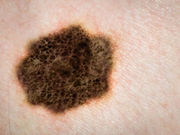One-third of study participants lived five years or more after starting treatment
TUESDAY, April 19, 2016 (HealthDay News) — More than one-third of advanced melanoma patients were still alive five years after starting therapy with nivolumab (Opdivo), according to the results of a study presented at the annual meeting of the American Association for Cancer Research, held from April 16 to 20 in New Orleans.
“In 2012, we saw some very promising early evidence that this drug could not only cause the regression of very advanced cancer in patients with melanoma, lung, or kidney cancers that had not responded to other forms of therapy, but we also saw that these responses appeared to be very durable,” lead researcher Suzanne Topalian, M.D., a professor of surgery and oncology at the Johns Hopkins University School of Medicine in Baltimore, told HealthDay.
In this follow-up of a trial started in 2008 of 107 patients, the researchers found nivolumab was effective over the long term. In 2014, Topalian and colleagues published a paper in the Journal of Clinical Oncology that showed some patients had lasting responses that continued even after stopping the drug. A year after starting treatment, 64.7 percent of patients were still alive. After 48 months, survival dropped to 35.3 percent, where it remained.
In the latest report, researchers also compared the drug with another U.S. Food and Drug Administration-approved melanoma drug, ipilimumab (Yervoy). About 21 percent of patients treated with ipilimumab were still alive as much as 10 years after treatment, Topalian said. She added that the response rate for the combination of nivolumab and ipilimumab is over 50 percent. However, toxic side effects are a concern. “There may be better ways to give the combination, and that is now in clinical testing,” Topalian said.
The study was funded by Bristol-Myers Squibb, which manufactures nivolumab.
Copyright © 2016 HealthDay. All rights reserved.








